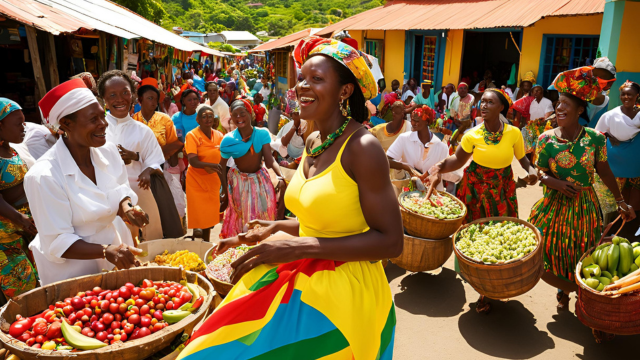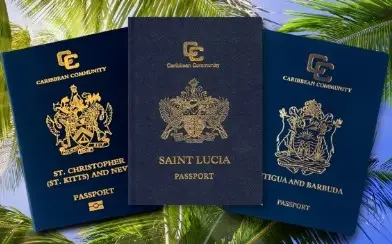Table of Contents
A Closer Look at Grenada People: Culture, Heritage, and Community
The people of Grenada, often referred to as Grenadians, are the heart and soul of this beautiful Caribbean nation. Known for their warmth, resilience, and rich cultural heritage, Grenadians embody the vibrant spirit of the “Island of Spice.” This article explores the history, demographics, lifestyle, and traditions of Grenada’s people, giving you a deeper understanding of what makes this island’s community so unique.
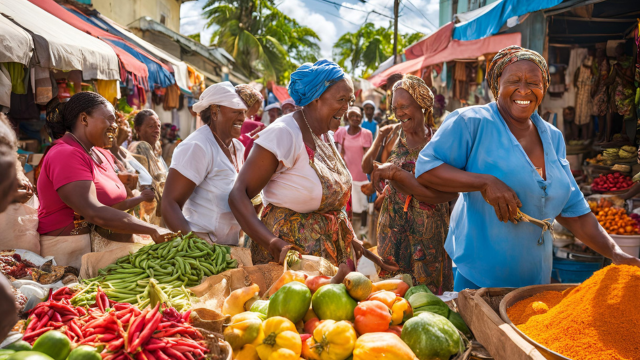
1. Demographics of Grenada’s Population
Grenada’s population is estimated at approximately 113,000 people, making it one of the smaller nations in the Caribbean. The country’s demographics reflect its colonial history and cultural blending over centuries.
1.1 Ethnic Composition
- African Descent: The majority of Grenadians are of African descent, a legacy of the transatlantic slave trade during the European colonial period.
- East Indian and European Heritage: A smaller percentage of the population traces its roots to Indian laborers and European settlers.
- Mixed Heritage: Many Grenadians identify as having mixed ancestry, reflecting the multicultural history of the island.
1.2 Age Distribution
The population has a youthful composition, with a significant proportion under the age of 30.
2. Language and Communication
The official language of Grenada is English, used in government, education, and media. However, local dialects enrich daily communication:
- Grenadian Creole English: A unique blend of African, French, and English influences.
- Grenadian Creole French: Though less common, this dialect reflects the French colonial past and is still spoken in some rural areas.
Grenadians take pride in their expressive and rhythmic speech, which is often accompanied by warm smiles and friendly gestures.
3. Religion and Spirituality in Grenada
Faith plays a significant role in the lives of Grenada’s people. The majority of Grenadians identify as Christians, with Roman Catholicism and Protestantism being the most prominent denominations.
Other Religions
- Hinduism and Islam: Practiced by small communities of East Indian and Middle Eastern descent.
- Traditional Beliefs: Some Grenadians still hold on to spiritual practices rooted in African traditions, blending them with Christian beliefs.
Religious festivals and church gatherings are important social events, fostering a sense of unity and belonging.
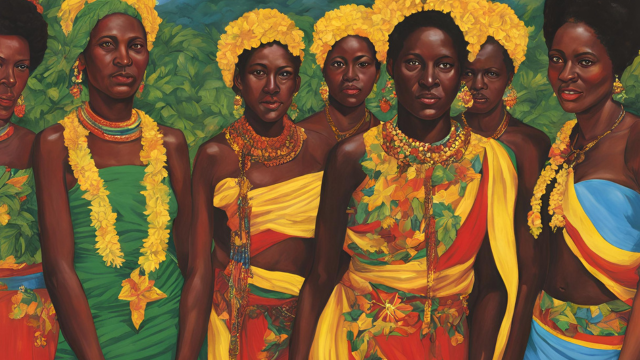
4. Grenadian Culture: A Rich Tapestry
Grenadian culture is a vibrant mix of African, French, British, and Indigenous influences, visible in its music, dance, and cuisine.
4.1 Music and Dance
- Calypso and Soca: Popular genres, especially during the annual Spicemas Carnival.
- Steelpan Music: A hallmark of Grenadian culture, often heard at festivals and celebrations.
- Quadrille Dancing: A traditional dance form with roots in French colonial times.
4.2 Cuisine
Grenadians are proud of their culinary heritage, often using local spices like nutmeg, cinnamon, and cloves.
- National Dish: Oil Down, a one-pot meal of breadfruit, salted meat, and spices, is a beloved staple.
- Seafood: Fresh fish, lobster, and conch are central to the Grenadian diet.
- Street Food: Popular snacks include fried bakes, roti, and callaloo soup.
5. Social Life and Community Spirit
Grenadians value their sense of community and hospitality. Whether it’s greeting neighbors or celebrating together, their strong bonds are evident in daily life.
5.1 Festivals and Celebrations
- Spicemas Carnival: Grenada’s most famous festival, featuring parades, costumes, and music.
- Independence Day: Celebrated annually on February 7th, marking Grenada’s independence from Britain in 1974.
- Harvest Festivals: Reflecting the island’s agricultural roots, these events bring communities together in gratitude.
5.2 Family Life
Families are close-knit, with a focus on mutual support and respect for elders. Extended families often live near each other, fostering a strong support network.
6. Education and Literacy
Grenada places a high value on education, with free primary and secondary schooling provided by the government. The country boasts a literacy rate of over 95%, reflecting its commitment to fostering an educated populace.
Higher Education
- St. George’s University: Renowned for its medical and veterinary programs, it attracts students from around the world.
- Technical and Vocational Training: Offered to equip Grenadians with skills for the local and international job market.
7. Resilience and Challenges
Grenada’s people have faced numerous challenges, from hurricanes to economic hardships. Despite these obstacles, they’ve shown remarkable resilience and adaptability.
Hurricane Ivan (2004)
The devastation caused by Hurricane Ivan tested Grenadians’ strength, but the island’s recovery demonstrated the community’s unity and determination.
Economic Opportunities
Many Grenadians work in tourism, agriculture, and fishing, with a growing diaspora sending remittances back home to support their families.
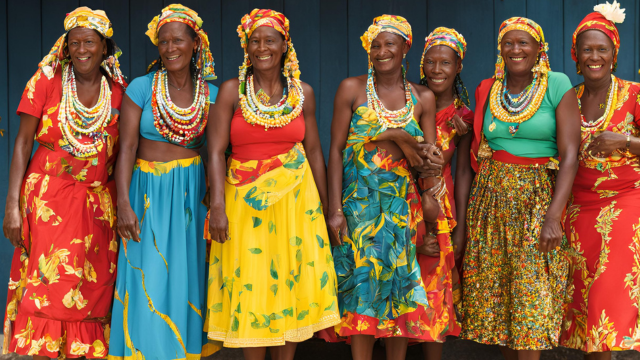
8. Fun Facts About Grenadians
- Global Presence: Grenadians living abroad form close-knit communities, particularly in the U.S., Canada, and the U.K.
- Sporting Achievements: Grenada has produced world-class athletes like Kirani James, who won an Olympic gold medal in the 400 meters.
- Friendly Nature: Grenadians are known for their warmth, often going out of their way to make visitors feel welcome.
9. Frequently Asked Questions About Grenada’s People
Grenada has a population of approximately 113,000 people.
The official language is English, but many Grenadians also speak Grenadian Creole English and Grenadian Creole French.
Grenadians are known for their hospitality, spice production, and vibrant cultural traditions like music and dance.
Christianity is the dominant religion, with Roman Catholicism and Protestantism being the largest denominations.
Grenada’s national dish is Oil Down, a flavorful one-pot meal made with breadfruit, salted meat, and local spices.
10. Conclusion: The Essence of Grenada’s People
The people of Grenada are as captivating as the island itself. Their rich cultural heritage, resilience, and hospitality make Grenada not just a place to visit but a community to admire. Whether through their music, festivals, or everyday interactions, Grenadians leave a lasting impression on everyone they meet.
Discover Grenada and its incredible people—you won’t be disappointed!

